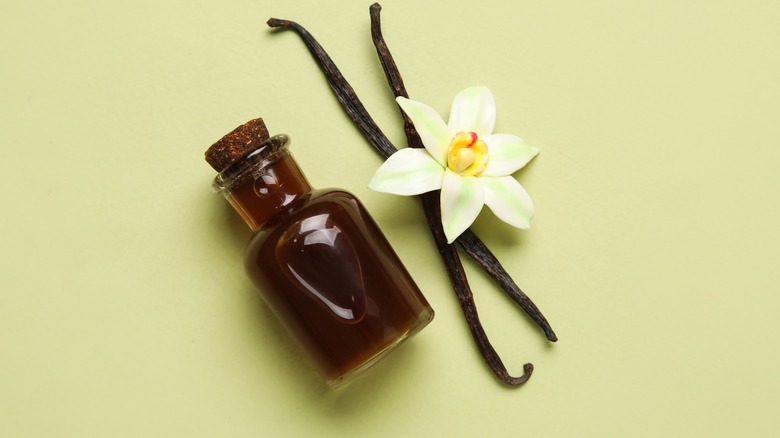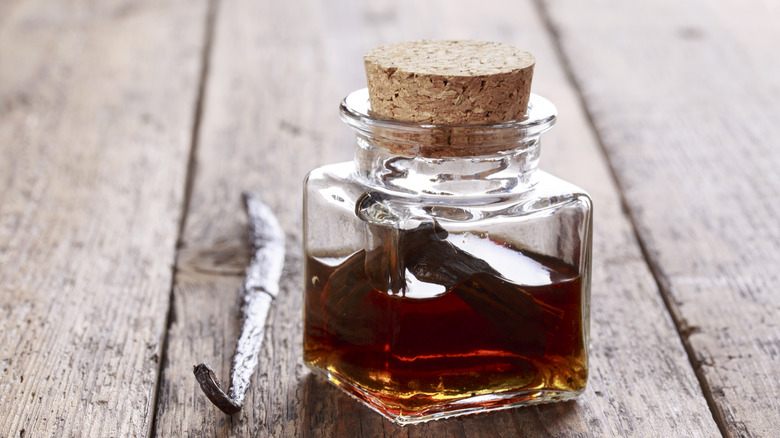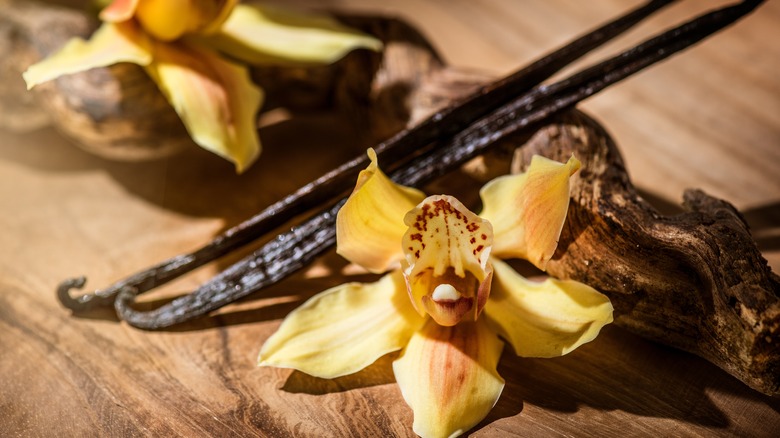Does Vanilla Extract Ever Really Expire?
Pure vanilla extract is one of the few pantry staples that naturally has an indefinite shelf-life. This is thanks to the product's high alcohol content, which is roughly the same proof as Jäegermeister. So there's no need to worry if the bottle you bought two years ago to make a cake or fix an overly acidic tomato sauce is still good. Just make sure to inspect it before use, as some manufacturers will add sugar or corn syrup to sweeten vanilla extract, which may cause mold to grow over time.
While pure vanilla extract won't spoil on its own, the complexity of the vanilla's flavor may degrade over time if stored improperly. To get the most out of your vanilla extract, make sure to always store it in an airtight container that's placed in a cool, dark, and dry environment. Exposure to heat, direct light, and humidity can cause the flavor to break down rapidly, so it's best to avoid storing your extract near the oven. Half-empty bottles of vanilla extract can also oxidize quickly, so transferring leftover quantities into smaller bottles can also preserve the quality of the product overall.
How is vanilla extract made?
Vanilla extract is made by soaking dried vanilla beans in water and alcohol. As the extract matures over several months, the alcohol becomes imbued with a flavor compound known as vanillin. To be considered pure, per FDA standards, a gallon of vanilla extract must contain no less than 13.35 ounces of vanilla beans and 35% alcohol. Since pure vanilla extract can cost around $3 per ounce, many home cooks and professional chefs alike prefer to make their own.
While homemade extract isn't inherently better (even Ina Garten works exclusively with store-bought vanilla in her recipes), many avid bakers consider it more cost-effective to make their own. To do so, simply take six whole vanilla beans, split them lengthwise, and place them in an airtight container with 1 cup of vodka. Put the container in a cool, dark place to infuse for at least two months, shaking periodically. Leaving the extract to infuse for longer –– anywhere from 90 days to a year –– will result in a darker color and more pronounced vanilla flavor.
Do other kinds of vanilla flavoring expire?
Imitation vanilla extract is a popular and inexpensive alternative to the real deal. Imitation extract is produced using synthetically derived vanillin along with caramel coloring and additional flavors to mimic the look and taste of real vanilla extract. While the alcohol content is significantly lower than pure extract (sometimes just 2%), imitation vanilla extract still has a shelf-life of approximately four years and is generally fine to use up to 12 months after the printed expiration date. Similar to pure extract, though, the flavor can degrade with time and exposure to heat or humidity.
Vanilla bean paste is also a beloved form of flavoring that differs from vanilla extract in potency and consistency. It's made using vanilla extract along with vanilla powder and natural thickeners to form a viscous, syrup-like product that is great for making desserts like ice cream and custard. Since the paste contains flecks of the vanilla beans themselves, it can bring a stronger flavor and distinct visual appeal to a dish than regular extract. When stored properly, vanilla bean paste has a shelf-life of up to three years.



